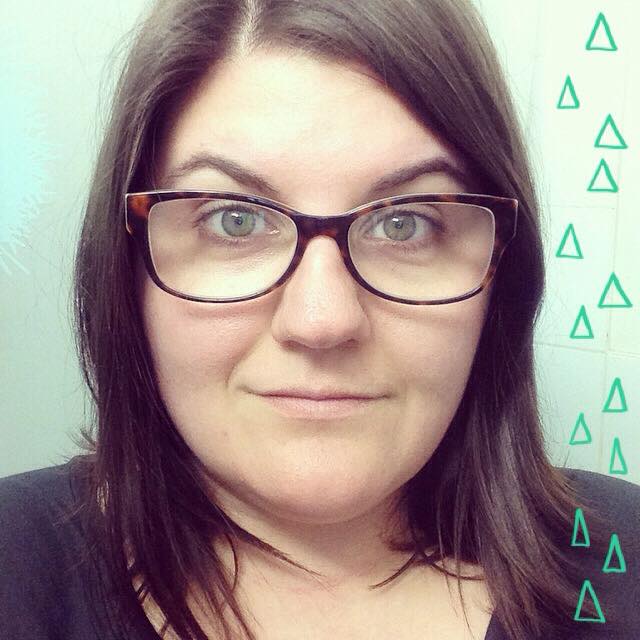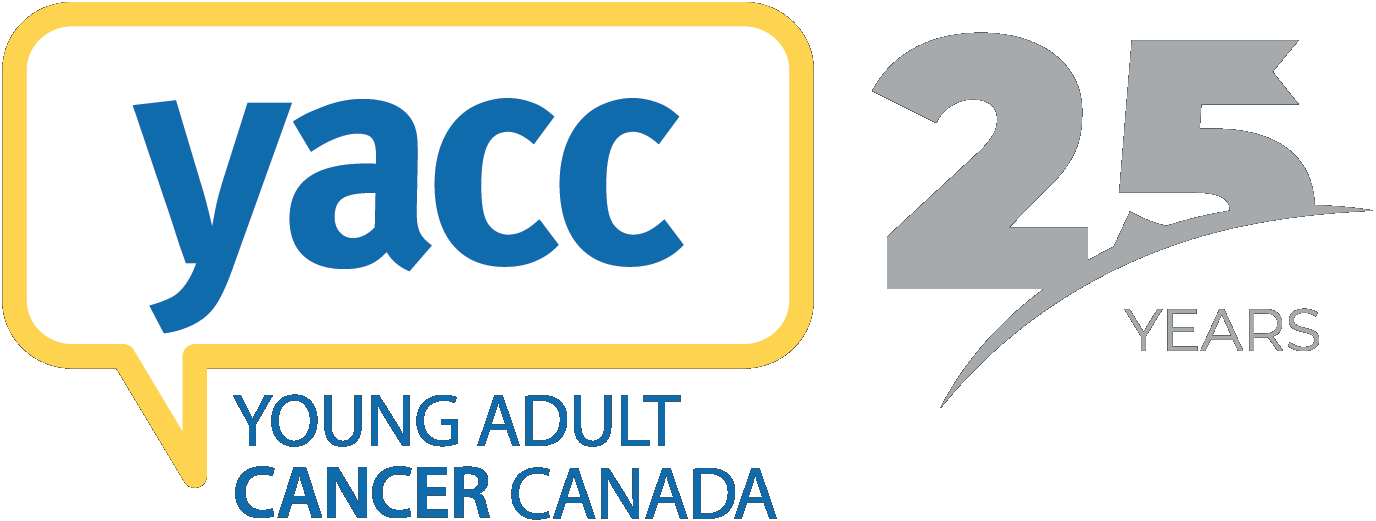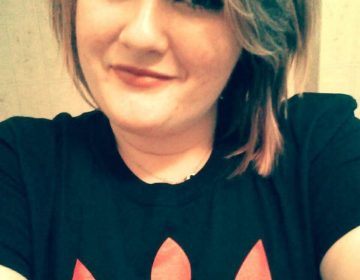
Crystal Harper
Age: 33
Hometown: Woodstock, ON
What was your diagnosis? Papillary Thyroid Carcinoma Stage 1
What school did you attend? Centennial College
What is your occupation? Early Childhood Educator
Your cancer experience:
How did you find out you were sick? What led to your diagnosis?
In 2010, I kept having this feeling like I had a pill stuck in my throat. I have family history of thyroid cancer and thyroid goiters, so I went into my family doctor and asked to be sent for an ultrasound. The ultrasound came back showing a 0.9 cm nodule, so I was sent to an ENT (Ear, Nose, Throat doctor) where they recommended just keeping an eye on the nodule. So, over the next four years, I went in for ultrasounds once a year and the doctors kept an eye on my. At the four-year mark, the nodule had grown quite a bit since the last time it was looked at, so I was sent back to the ENT and they did an ultrasound and a fine needle aspiration biopsy. The biopsy results came back, and they said that there was a 90 per cent chance that I had thyroid cancer.
What year was it? What was your age at the time?
I was diagnosed in June of 2014; I was 32 at the time.
In which hospital were you treated?
Mount Sinai Hospital Toronto
At what level of education were you at diagnosis?
I had a college diploma in Early Childhood Education, and was working full-time as an ECE in a daycare.
What were your first thoughts when diagnosed?
I was calm. For whatever reason, I had a feeling from the first ultrasound that I had thyroid cancer. I also knew what the treatment procedure was due to having family history of thyroid issues, so I wasn’t going in “blind.”
How did your family react?
My husband asked a lot of questions, but overall appeared to be in shock. My parents and siblings were upset, which was to be expected.
How did your friends react?
Some seemed very concerned and treated me as if I were really sick (which I wasn’t, or at least I didn’t feel I was) and others distanced themselves from me and didn’t appear to want any information about what I was or would be going through.
What did your treatment consist of?
The medical side of my treatment consisted of me going in and having a total thyroidectomy on August 20, 2014 (three months after my diagnosis) where they removed my entire thyroid.
After the surgery, I found out I actually had two nodules that none of the doctors decided to tell me about in the four years they were keeping an eye on things. From that point on, I’ve asked for all of my paper work from all my doctors (ultrasounds, bloodwork, etc.) so I know what is going on and don’t have to rely on the doctors to fill me in on the information.
One nodule was partially encapsulated, so they ended up removing two lymph nodes to have them checked for cancer as well; thankfully, they came back negative and my endocrinologist doesn’t feel the need for me to have radiation at this time.
The day after my surgery, I was put on Levothyroxine (a synthetic thyroid stimulating hormone pill) since I no longer had a thyroid that would produce thyroid simulating hormone (TSH). I will have to take a synthetic thyroid pill every day for the rest of my life. I will also need to have ultrasounds and blood work every few months to make sure my thyroid hormone levels are where they need to be, and to make sure the thyroid cells and cancer haven’t come back.
The non-medical side of my treatment has been a roller coaster. I am eight months out from my surgery, and my TSH levels still aren’t where they need to be. I have really good weeks where I feel like my old self with a lot of energy, and then I have really bad weeks where I feel completely and utterly exhausted, my whole body aches, I have pains in my shoulders, wrists, knees, feet, etc. My skin has changed a lot and is now dry, very sensitive on my chest/neck/face, and I have acne break outs which didn’t happen prior to my surgery.
The weeks where I’m not feeling the best, I end up feeling pretty depressed at the end of that week because I just get fed up of feeling sore and exhausted all day, every day, and there is only so much I can take before I break. The depression usually doesn’t last long as my symptoms end up dissipating for a few weeks so I start feeling good again. It’s just a constant vicious cycle of feeling great to feeling horrible to feeling depressed and then back to feeling great again.
What is your current medical status?
Ongoing.
How is life different for you now post diagnosis?
I’m more thankful for the little things in life. If I’m having a bad day — or week — I try to remind myself that things could be a lot worse, and that I’m alive, and at this moment in time that’s all that matters.
I’ve also learned to ask for help when I need it (still working on this one), and to be open with people when I’m not feeling the best and to let them know that I’m having a rough week.
What are your thoughts and feelings about your illness now? Have they changed since before your diagnosis?
Before my diagnosis, I believed that with thyroid cancer, they just removed your thyroid, you took a pill, and everything was better. Since being diagnosed, I realized that is not the case.
A lot of people who have not had thyroid cancer, or do not know someone who has had thyroid cancer, believe that it is the “good cancer.” They believe what I believed before my diagnosis. Thyroid cancer is not the “good cancer.” People need to be made more aware of what your thyroid does for your body, and how not having one affects so many aspects of life, and there are 300+ different symptoms that can occur due to not having a thyroid anymore.
What is the toughest part of your challenge?
The unknown, and the fact that there is no guarantee that the cancer won’t come back, or that any of the symptoms I’ve been dealing with will ever go away. Also, the daily reminder in the morning of the “what ifs” as I take my thyroid pill.
What was the best lesson you took away from your challenge?
Live each day to the fullest. Focus on the now, and try not to worry about the past or future; what will be will be.
What really motivates you to keep going ?
Life! I’m only in my early 30s, so I have a lot of life left to live, and I plan on living it to the fullest!
What are some preventative measures that people can take to lower their risk of having an experience like yours?
Speak up for yourself, just because someone has a medical degree doesn’t mean they have your best interest at heart. If you think something is wrong and your doctor isn’t listening to you, find another doctor. Get a second and third opinion where you need it. Do your own research, learn as much as you can about the type of illness you have (the treatments, symptoms, side effects, etc.). Always ask for a copy of your tests and paper work each time you go in for an appointment or have a test done. Knowledge is power!
How are you connected with Young Adult Cancer Canada?
YACC had come up on a friend’s Facebook page a few times, and when I was doing some research on thyroid cancer and cancer in general, this site kept coming up. [Editor’s note: Sometimes Google can be as subtle as a bag of rocks!]
Are you interested in helping others facing cancer challenges?
Yes!
If you are interested in connecting with Crystal, please email [email protected] and we will connect you with her.








